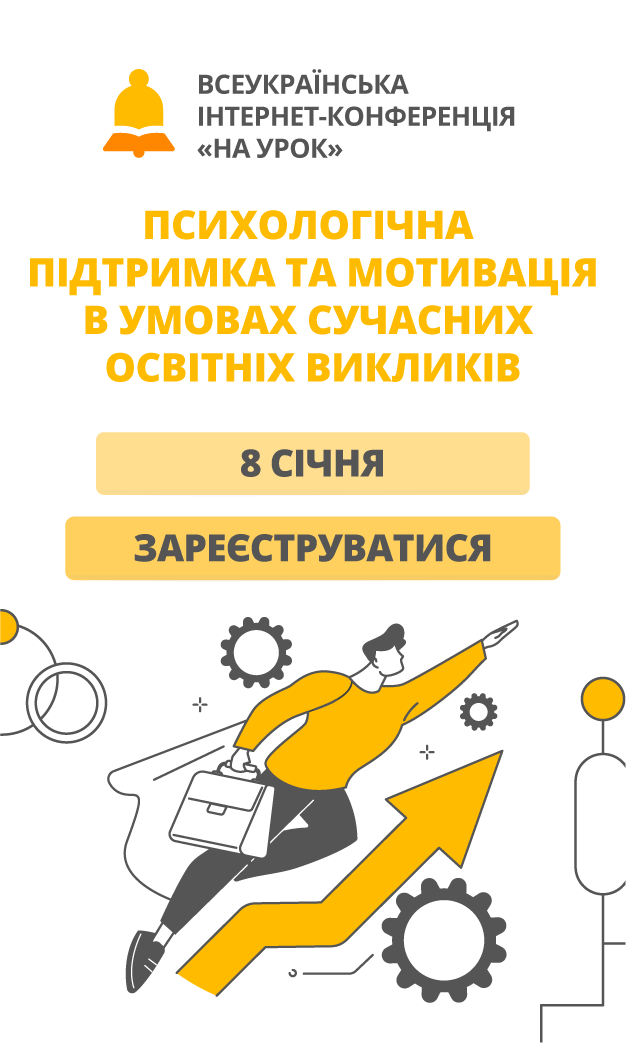Lesson plan: My ideal school
Lesson 26.
Date: 04. 12. 2023
Learners: pupils of the 8 - th Form
Topic: My Ideal School. School in my Life.
Are you good at school?
Objectives: by the end of the lesson pupils would be able:
- to learn new vocabulary:
to apologize – вибачатися to worry about – турбуватися про
to get knowledge – отримувати знання an adult - дорослий
to write clearly – писати ясно, чітко unfortunately – на жаль
sport facilities – спортивні споруди (об’єкти)
- to practise the vocabulary on the topic: School in my Life
- to practise Grammar: the Past Continuous Tense
- to develop their listening, reading, speaking and writing skills.
Skills: listening, reading, speaking, writing.
Aim: to educate and develop pupils’ interests to School, Studying at School
and respect for their Teachers and Classmates
Material: a book, an exercise-book, some Grammar and lexical cards on the topic,
a notebook, a TV.
Procedure:
- Beginning of the lesson:
Greetings, checking up the readiness of the form to begin their work at the lesson.
- Warming up:
T.: The epigraph of our lesson is: Knowledge is power.
The more we study, the more we know.
The more we know, the more we forget.
The more we forget, the less we know.
Why do we need to study?
A good school changes students;
students change great schools.
A good school is full of joy, curiosity,
hope, knowledge, and constant change.
T.: Let’s recite a poem about school:
P1: We learn such lots of things at school
And new ones every day!
We think the names of some of them
Are very hard to say.
P2 Geography is very nice
But History is better.
And composition teaches us how to write a letter.
P3 – But English is the best of all,
For everyone of us,
It helps us travel around the world and
Speak to people abroad.
.
T: WHY DO CHILDREN GO TO SCHOOL?
You can use: Exercise 6, page 104 for your answers.
(варіанти відповідей)
- school teaches us moral values;
- school helps us to understand people better;
- I know the history of Ukraine;
- I study to choose a profession;
- I like English and IT;
- I like all school subjects.
T: Now let’s work in groups.
Match the words with their definitions.
A person who always tells the truth and never lies. - honest
A person who is always happy to give more than usual and is ready to help. - helpful
A person who is never happy with what he or she gets. - complaining
A person who always likes to be in the company of other people. - sociable
A person who usually treats everybody the same. - fair
A person who always likes to learn new things and is interested in learning. - curious
A person who doesn’t like meeting new people. - shy
A person who always gives his / her opinion. - honest
A person who doesn’t forget to do things. - responsible
A person who is friendly and likes parties. - amusing
A person who thinks about what others need. - caring
A person who doesn’t like working hard. - lazy
A person who never lets you down. - reliable
A person who is always happy to give more than usual. - generous
A person who is never happy with what he or she gets. - jealous
A person who has got a big experience. - experienced
A person who helps people when they are in trouble. - helpful
A person who knows what he / she wants and tries hard to get it. - determined
A person who talks too much and it’s so hard for him / her to keep secrets. - chatty
A person we can rely on him / her.
If we have a problem or get in trouble, he / she will help us. - reliable
A person who hurts another person and laughs without reason. - a bully
They keep various textbooks there. - a library
Students have got their PE classes and run, jump and do sports there. - a gynnasium
Students have got their concerts and meetings there. - an assembly hall
Students and teachers go there to keep safety when there is an air alarm. - a shelter
A person who usually likes working hard and tries to do everything. - hardworking
A person who has got a rich imagination and always likes to create something
interesting and beautiful. creative
- Review:
T: Now let’s revise your hometask: Exercise 3, pages 98 -99 orally;
Exercise 4, page 100 in written form.
T: Let’s talk about schools in England. Complete the sentences, please.
Match two parts of the sentences.
Register helped to control attendance.
Prefects helped to control younger pupils outside classes.
Punished students can stand outside the classroom or sit on their own.
Students can be excluded from a state school for a bad behaviour.
I. Match the words with their definitions:
1. a lesson a) a series of lessons in a subject;
2. a break b) to give a penalty;
3. a timetable c) the supplies needed for a certain activity
4. a report d) a short period of time in which you study a subject;
5. an equipment e) to learn something so well as to know it by heart;
6. to attend f) a period of rest between lessons at school;
7. to punish g) a document written by a teacher about student’s progress;
8. to memorise h) to be present at
II. Find the opposites
1. interesting a) low
2. bad b) soft
3. busy c) boring
4. high d) good
5. strict e) lazy
T: Now present us your School Charters, please.
- Presentation:
T.: Let’s learn new vocabulary:
to apologize – вибачатися to worry about – турбуватися про
to get knowledge – отримувати знання an adult - дорослий
to write clearly – писати ясно, чітко unfortunately – на жаль
sport facilities – спортивні споруди (об’єкти)
- Practice:
T.: I want you to practise the vocabulary. Let’s watch the video film: School Life.
and do some exercises after watching it.
Exercise 7.
Maya goes to a boarding school. She sleeps there and only goes home for holidays. Listen to her describing her school.
Complete the article Maya wrote with the missing words.
I go to a boarding school called Hartland School. It has about (1) ______________ students. I have to share a bedroom with (2) ___________ other girls. We can put (3) ___________ of our family on the walls.
There’s a library where we do our homework. We start studying at (4) ____________ every evening. We work really hard at my school. We even have lessons on (5) ___________ mornings!
After homework, we can go to the (6) ________ room to have some fun. We have meals in a big (7) ______________ and we have to help with the (8) ___________ afterwards.
We have to do sports at my school. Next term, we’re going to do (9) ___________ .
T.: Let’s listen to the Audio text : School and complete the sentences with the words from the box, please.
Most kids say they don’t like school. They say their subjects are boring or there’s too much homework. In fact, school is one of the best times of a person’s life. Think about it.
The hours are short – usually just six hours a day. You have the opportunity to learn lots of really useful stuff.
You get to do science experiments, learn a musical instrument and play sports.
On top of that, you get loads of holidays. Oh, I nearly forgot, you also get to see and play with your friends five days a week. What is there not to like?
OK, school lunches are not the best in the world but you can bring your own lunch. And yes, exams are stressful, but if you study, you’ll do well in them.
I’d love to go back to school. If I had another chance, I’d try my best in every subject.
Gap Fill
Exercise 6. Listen and fill the gaps:
|
boring / don’t like / too much / the best times / six hours opportunity / useful / science / instrument / holidays / friends bring / stressful / chance / subject |
Most kids say they (1)_________ school. They say their subjects are (2)____________ or there’s (3)__________ homework. In fact, school is one of (4) ________________ of a person’s life. Think about it.
The hours are short – usually just (5) __________ a day. You have the (6)____________ to learn lots of really (7)___________ stuff (речі).
You get to do (8) __________ experiments, learn a musical (9)___________ and play sports.
On top of that, you get loads of (10) ___________. Oh, I nearly forgot, you also get to see and play with your (11)___________ five days a week. What is there not to like?
OK, school lunches are not the best in the world but you can (12)_________ your own lunch. And yes, exams are (13) ___________, but if you study, you’ll do well in them.
I’d love to go back to school. If I had another (14) ___________, I’d try my best in every (15) ___________.
- Production:
T.: Let’s make your parts of a Class Project: My Ideal School
- Revision:
T.: I want you to revise the lesson. Let’s present your parts of a Class Project:
My Ideal School
- Summary:
T.: Pupils, I’m satisfied with your work at the lesson. Did you like the activities?
Dear pupils, your marks for today’s work at the lesson are:
T.: And now I offer your hometask. Please, do:
Ex. 8. 9 , p. 104-105 (SB) – make a Project of your Ideal School
T.: Well, pupils. Thank you for your participation at the lesson. You worked hard.
Now the lesson is over. Good bye.


про публікацію авторської розробки
Додати розробку
